Testimony was originally given on April 12, 2021.
CHANGE Illinois Testimony: Transparent and Accountable Redistricting
Illinois House Committee on Redistricting
To: Chair Hernandez and committee members
From: Ryan Tolley, Policy Director of CHANGE Illinois
Thank you Chair Hernandez and committee members for allowing me the opportunity to testify today. My name is Ryan Tolley and I am the policy director of CHANGE Illinois and the CHANGE Illinois Action Fund. Both are nonpartisan nonprofits that educate, engage and advocate for ethics and efficiency in governments and elections. CHANGE Illinois is a coalition of more than 30 organizations and we long have advocated for an independent, transparent redistricting process.
It is important to recap the past three weeks of redistricting hearings because there’s a lot that remains unaddressed. Unfortunately, many of our recommendations and concerns, shared widely by many of those who have testified, remain unanswered. Holding hearings is not enough. We have had witnesses reach out to us who never received zoom access after filing witness slips or who had trouble navigating the process altogether.
Other people have raised complaints that they couldn’t testify because they were unable to move around their work schedules as most of the hearings have been held on weekdays between 9 a.m. and 5 p.m. At one hearing, there was a witness calling in from their job and who couldn’t finish testifying because they were worried about their boss seeing them on their phone. This is not how an open and transparent process works.
There were two hearings, one in Rock Island and one in the south side of Chicago, that did not provide a way to participate remotely, thereby making residents choose between their health and standing up for their communities. That was the case, despite the General Assembly making remote participation available for the first time this year to make it easier to govern during a pandemic. Not having remote participation options is not inclusive for many Illinoisans who should have a say in what their districts look like.
There still remains ambiguity over which data lawmakers intend to use to draw maps. It has been said on a few occasions by committee members that lawmakers are considering multiple data sources and it has been made clear that the General Assembly intends to move forward with passing a map before June 30th. Therefore, we can only surmise that this committee has no intention of using 2020 census data to draw maps, as Census Bureau officials have made it abundantly clear that 2020 census data will not be available until fall, at the earliest mid-August and at the latest September 30th.
Only one state, Oklahoma, has formally decided that they will use American Community Survey (ACS) data. We cannot follow their path. Many witnesses have raised concerns and objections to using ACS data and not using 2020 census data. It is telling that barely any witnesses have come forward to talk to the merits of using ACS data rather than 2020 census data. We do not accept the notion that the June 30th deadline is more important than ensuring we are using the most accurate and reliable data to ensure everyone is counted and that has historically been used for redistricting in Illinois.
Why are we three weeks into this process and we still cannot get a clear picture of what data this committee is using?
As our organization has testified to previously, there is a path to use 2020 census data without having to draw a name randomly. This committee could ask the courts for relief from the constitutional deadlines and move our primary election date back through legislation, even if only for the upcoming 2022 election. The General Assembly made similar accommodations for the 2020 election, passing an election omnibus to provide for temporary changes. And this is not a new idea, California took proactive steps to navigate the Census Bureau’s delay last summer and other states are pursuing the court option.
Illinoisans need transparency on how this committee’s work will proceed. It is unclear how witnesses’ testimony is going to be used in map proposals. It has not been made clear whether they will have the opportunity to weigh in on map proposals before votes are taken. It has not been made clear how long people will have to submit maps or testimony to this committee.
It has also been mentioned, at the onset of a few hearings, that the committee is looking for political considerations, among others, from the public. Yet, in the presentation by House staff their definition of “communities of interest” does not include any reference to political concerns or political data. It would be in the public’s interest to have an explanation from committee members as to how political data is going to be considered. Using political data to protect a political candidate or elected official or to harm one is not in the best interest of Illinoisans. The use of political data for partisan advantage also could likely result in a veto of a map proposal as Governor Pritzker has publicly stated he will veto a partisan map.
We would, again, urge this committee to adopt our following recommendations:
- Provide a roadmap for how the process is going to proceed after the current public hearings scheduled end.
- Provide two-weeks’ notice for all future public hearings and publicize them more broadly than what has been done so far.
- Provide at least a two-week period between the introduction of map proposals and votes on those proposals so that several public hearings can be held at which Illinoisans can provide feedback and lawmakers should respond.
- All map proposals should include a compliance report that details how lawmakers have incorporated public feedback and adhered to the Federal Voting Rights Act and the Illinois Voting Rights Act.
Thank you for providing me the opportunity to testify. I am happy to answer any questions from committee members.
Ryan Tolley
Policy Director
CHANGE Illinois
